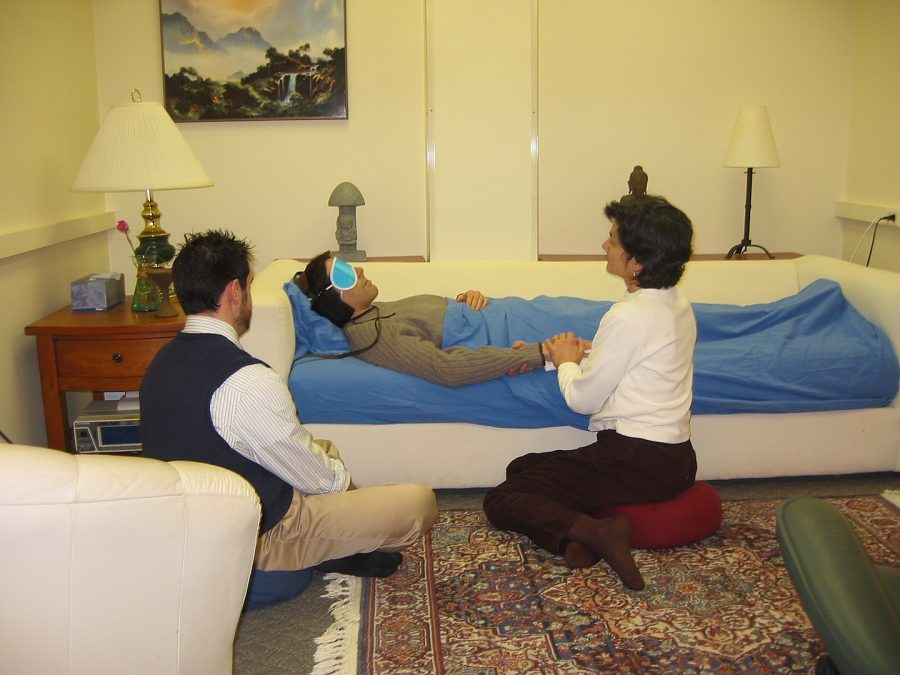Buening: Psychedelic Research Can Dismantle Stigmas Around Drug Usage
April 7, 2022
States such as California and Colorado have made strides to legalize substances like marijuana for recreational and medicinal purposes. But in Utah, we lag behind because of our long, complicated history with drugs. Many still shun marijuana, mushrooms and other herbs. People still consider them as unsafe for use and even shameful to possess.
Utah’s majority LDS, conservative population, largely opposes legalization. Members of the faith consider ingesting such substances a sin. Political motives also influence the narrative around drug use. While medical marijuana is technically legal in Utah, it’s difficult to attain.
Recently psychedelic viability has become a particularly hot topic within government and science realms. Psychedelics remain much more taboo than weed, likely because of their more intense side effects. While psychedelic substances require careful handling, we have over-stigmatized them for misguided reasons. In doing so, we deny ourselves the enormous potential for medical and mental healing that lies within psychedelic research. We should cast aside this irrational vilification and reap the potential benefits these resources can provide.
The banning of psychedelics has had much less to do with their relative risks or scientific assessments and everything to do with who is associated with these drugs. Our mainstream education, however, doesn’t present this issue properly. Instead of highlighting their social justice implications, it encourages a misunderstanding of drugs, drug addiction and stigmatization.
Former President Richard Nixon first declared a “war on drugs” in the ’60s, when drugs became a “symbol of youthful rebellion, social upheaval and political dissent.” Since then, drug criminalization has targeted communities of color and leftist political orientation, as exemplified by anti-marijuana laws impacting Latino and Black communities disproportionately. Today, drug hysteria has contributed to America’s record-holding incarceration rate and prison industrial complex. We need to look to communities who have achieved more successful relationships with substances to dismantle our harmful attitude towards them.
Indigenous cultures have an especially close relationship with psychedelics. The Mazatec people of Mexico, for instance, use mushrooms to facilitate experiences closer to their divine. Closer to home, the Navajo Nation in southern Utah uses peyote, a hallucinogen, for a variety of valuable purposes. As knowledge and research of this usage expanded, one doctor observed Navajo peyote use in 1971. He recorded that, to the surprise of people at the time, the drug didn’t cause any increase in the rate of illness in Navajo populations. Rather, he credited their low rate of illness was “probably because the feelings evoked by the drug experience are channeled by church belief and practice into ego-strengthening directions and there are built-in safeguards against bad reactions.” Thus, with proper implementation, psychedelics can help us achieve emotional growth as well.
Efforts to end drug use have never been successful. There remain over 30 million psychedelic users in the U.S. alone. Prohibition doesn’t change this — and it shouldn’t.
Research has demonstrated that psychedelics provide substantial therapeutic benefits for people suffering from a wide range of conditions, including addiction, existential distress caused by life-threatening diseases and treatment-resistant depression. One study found that psychedelic therapy ensued “large effect sizes” for acute and sustained decreases in suicidality. Psilocybin therapy, specifically, has been found to increase cognitive and neural flexibility in patients with major depressive disorder. The psychedelic compound in magic mushrooms can also stimulate nerve cell regrowth in parts of the brain responsible for emotion and memory. It’s incredibly effective for overcoming fear, stimulating neurogenesis and treating PTSD.
Meanwhile, our current methods of therapy, antidepressants and antipsychotics have many shortcomings. Different mood stabilizers can cause an increased risk for physical diseases like obesity, diabetes and thyroid disorders, among other things. In my experience with antidepressants, I’ve felt numbness, stomach pains and ironically, mood instability.
Psychedelic research also advances our understanding of human neurology and consciousness. We can gain unique insights into neurophysiological mechanisms of action, which help us to further medical understanding on many fronts. Research on psychedelic compounds began in the 1950s but ended abruptly in the ’70s amongst unfavorable media coverage and rampaging misperceptions. Highly restrictive regulations caused a decades-long research hiatus, but now research and legislation have helped us slowly progress forward.
The John Hopkins Center for Psychedelic and Consciousness Research published a well-known study highlighting the positive effects of psilocybin in 2006, sparking further research worldwide. Right now, the center is conducting research on how psilocybin could help addicts with smoking cessation, address anorexia and mitigate alcohol use disorder.
Considering these benefits, we shouldn’t stand in the way of legislation that loosens psychedelic restrictions. H.B. 167, recently passed by the Utah legislature, created the Mental Illness Psychotherapy Drug Task Force. This constitutes an important step in, at the very least, studying and making recommendations on drugs that assist the treatment of mental illnesses. We must not let the stigmatizations surrounding psychedelics invade these determinations. Otherwise, we deny people the kind of care that can dramatically improve their quality of life.
We’re standing in our own way by stigmatizing psychedelics. Even when addiction does occur, stigmatization doesn’t help people find the resources to recover. Further research on the topic has already proved fruitful for people suffering from many serious ailments. And we’ve only barely tapped into that potential.








